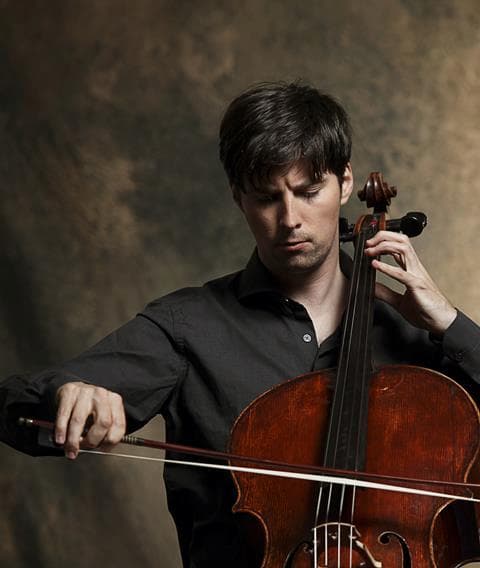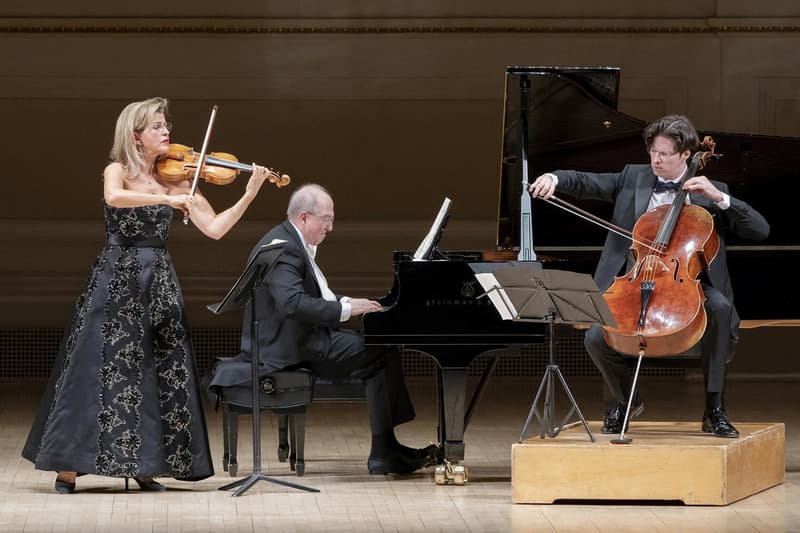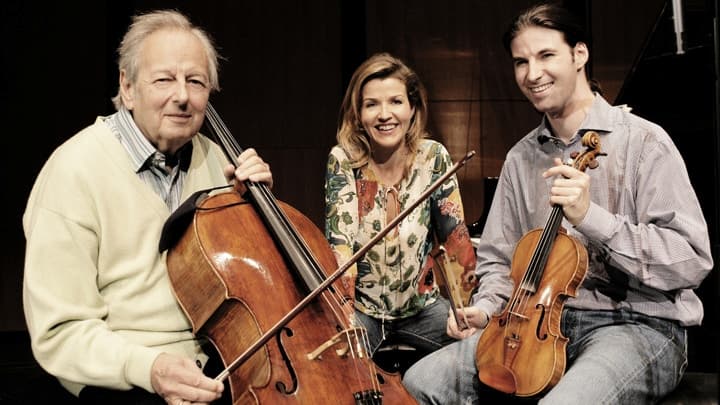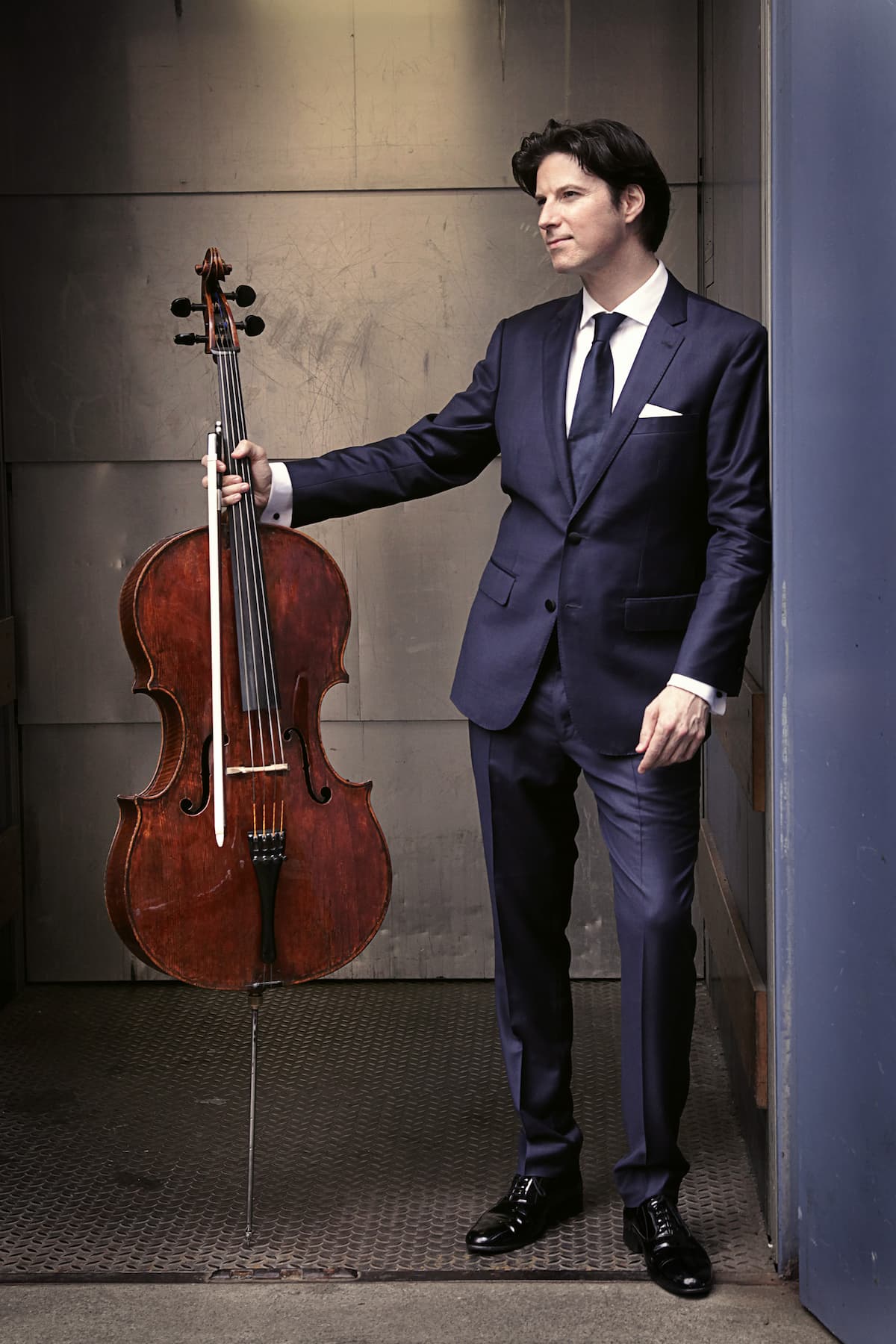Daniel Müller-Schott, born on 2 November 1976 in Munich, Germany, started his musical education on the recorder, but soon began to take cello lessons at the age of five. The reason he decided on the cello was because his mother, a harpsichordist and piano teacher who had studied with Nickolaus Harnoncourt, frequently took him to various “historically informed” orchestra concerts.

Daniel Müller-Schott
Daniel explains that “she had all these Baroque books on music history and composers, so I learned a lot in my youth about the HIP movement.” When he heard Yo-Yo Ma perform the Schumann Cello Concerto, he fell in love with the instrument. He was fascinated by the way the instrument sounded and how it was played, and quickly asked his mother if he could take lessons. Daniel remembers, “If you pick an instrument as a child, you feel a connection to a particular voice and for me the cello was always the most direct. When you put the bow on the cello string you can really sculpt a special emotional atmosphere. It’s more physical than the violin, a darker tone, and I felt this was fit for me.”
Daniel Müller-Schott Plays Lalo’s Cello Concerto
Playing the cello was just one of many activities for Daniel. “I didn’t practice very much,” he says. “I had my friend and soccer was my dream. Later when I was about 13, I won my first competitions in Germany and that’s when I decided to continue and work harder.” His primary teachers at that time had both studied with André Navarra in Paris. Walter Nothas was then the principal cello of the Bavarian Radio Symphony in Munich, and he also studied with Heinrich Schiff for four years in Salzburg and Vienna until 1998.

Anne-Sophie Mutter, Daniel Müller-Schott and Lambert Orkis © Jennifer Taylor
“They both introduced me to the Saint-Saëns and the Lalo concertos when I was as young as 13, or 14 and I fell in love with the elegance, the noblesse, the emotional impact that the French composers somehow expressed in their music, and with the French style itself. When you study a romantic concerto, you try to produce a very full and warm sound, but I feel that with French music it’s more subtle and sophisticated. You need to have more variety in your colors, which I find very motivating and challenging.”
Daniel Müller-Schott Plays Saint-Saëns’ Cello Concerto No.1, Op. 33
After further studies with Steven Isserlis, “whose enthusiasm greatly inspired me,” Daniel won the first prize in the Moscow International Tchaikovsky Competition for Young Musicians in 1992. Winning that competition at the age of 15 was the primary reason Müller-Schott decided to become a professional musician.

Anne-Sophie Mutter, Daniel Müller-Schott and André Previn
As he writes, “I could have gone into all kinds of other directions because I was interested in many other things. But then after the prize I was asked to play more and thought this is what I should follow.” When Anne-Sophie Mutter found out that Daniel had won the Tchaikovsky Competition, she invited him to play for her. Recognizing the intensive expressiveness of his playing, Mutter suggested that Daniel play for the exceptional Russian cellist Mstislav Rostropovich. Through her Foundation, Mutter organized Daniel’s travel to France and supported his lessons and masterclasses with him. In fact, “Mutter even bought him a precious cello, the “Ex Shapiro” Matteo Goffriller cello, made in Venice in 1727, through her foundation.
Daniel Müller-Schott Plays Prokofiev’s Sonata for solo cello
Rostropovich introduced Daniel to the repertoire of his friends and colleagues, in particular Britten, Shostakovich and Prokofiev. He remembers, “With the Shostakovich, as a young cellist, I was there, somehow taking part in the history of music. When I play the concertos today, I always think of that moment. The opportunity to study with him was just incredible. It was a really astonishing, enormous experience, and yes, I was overwhelmed by the sheer energy and power and experience he had, the way he was breathing music, 24 hours a day.”

Daniel Müller-Schott © Uwe Arens
In 2013, Müller-Schott won the “Aidai Stucki Prize,” named after the Swiss violinist and pedagogue. “With this award,” the Mutter Foundation wrote, “we recognize Daniel Müller-Schott for his outstanding contribution to the cello repertoire. It is not just his solo skills that make him a shining example for a whole generation of young cellists…This musician stands in a particularly close artistic tradition to the violinist and pedagogue Aida Stucki, who anchored the European tradition of playing and training in the future.” For Müller-Schott, “music is the language that doesn’t need words and goes straight to the heart and soul. Sharing so much diverse music with my musician friends and our dear audience is tremendously satisfying and rewarding. I deeply believe that music can inspire us all.”
For more of the best in classical music, sign up to our E-Newsletter
Daniel Müller-Schott Plays Dvořák’s Cello Concerto, Op. 104
